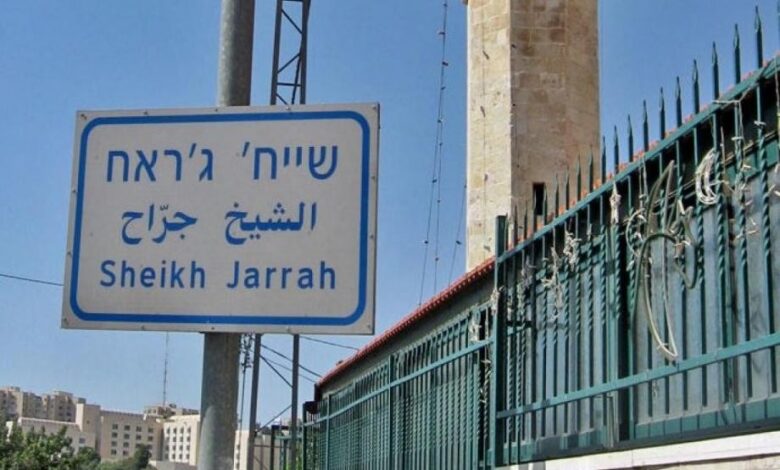Australia/Israel Review
Deconstruction Zone: Sheikh Jarrah shows why Palestinians remain stateless
Nov 25, 2021 | Mitchell Bard

Many critics of Israel have joined Hamas and the Palestinian Authority in denouncing Israel because courts have determined that a group of Palestinian families is illegally living in homes owned by Jews in the Sheikh Jarrah neighbourhood of Jerusalem.
Rather than accept a compromise offered by Israel’s Supreme Court that would have allowed them to stay in their homes, the families turned it down and now face eviction (as of early November, one of the families that did not appeal the eviction order reached a deal with the property owners that will allow them to remain in their homes for at least ten years as long as they pay rent). This is a microcosm of the entire conflict as the Palestinians prefer no loaf to any part of a loaf.
In brief, Jordan sequestered “enemy property” owned by Jews in Sheikh Jarrah after the 1948 War of Independence. Jordan never gave the Palestinians title to the land it seized. When Israel captured the area in 1967, the government released the sequestered properties. In 1972, the Supreme Court validated the Jewish claims to owning the property they had been forced to abandon, but ruled that Arab families living in homes on those lands could not be evicted if they agreed to pay rent to the owners.
In 1993, the owners sought to evict the tenants for failure to pay rent, but it was not until 2001 that the Jerusalem Magistrate’s Court agreed with them. The Israeli Supreme Court, however, sought a compromise to allow the Arabs to stay and suggested they could enjoy the status of protected tenants, retain the right to try to prove ownership of the properties, and stay in their homes if they agreed to pay rent that amounted to about A$86 per month.
The Palestinians rejected the offer, preferring eviction to remaining in their homes – much like the tens of thousands of Palestinians who preferred to flee their homes in 1948 in hopes that the Arab armies would drive out the Jews rather than becoming Israeli citizens.
Not surprisingly, the Palestinian leadership endorsed the families’ decision. The Palestinian Legislative Council issued a press release that said “the Al-Quds and Al-Aqsa Committee in the Legislative Council affirmed that the people of all of Palestine, from its sea to its river, and its armed resistance stand behind the people of Sheikh Jarrah neighbourhood.” It also said, “Al-Quds and the blessed Al-Aqsa Mosque, like all of Palestine, are a purely Islamic endowment and sanctuary in which the Jews have no historical, religious or cultural right” (emphasis added).
Read those emphasised words again. Where do you see the opportunity for a two-state solution?
If you look at the Palestinians’ views, they are as recalcitrant as they were nearly a century ago. To this day, the Palestinians do not accept the legitimacy of a Jewish state in what they consider Palestine.
The Palestinians refused to compromise in 1937, 1939, 1947, 1979, 1993, 2000, 2001, 2008 and 2020. That’s nine opportunities they missed to achieve independence.
How many people are even aware that except for a brief meeting between Palestinian Authority President Mahmoud Abbas and then Israeli Prime Minister Binyamin Netanyahu, the Palestinians have refused to negotiate with Israel since 2008? They wouldn’t even accept the initiative of the friendly Obama Administration.
Two-state advocates refuse to acknowledge not only this history but the present, which is not just reflected by the Sheikh Jarrah case but also by the broader Palestinian rejection of compromise. According to recent polls, for example, 66% support annulling the Oslo Accords, 54% oppose returning to negotiations, 54% believe a return to an armed intifada is the best way to achieve their goals and, by a 62-36% margin, oppose a two-state solution (and support has been steadily declining).
The Sheikh Jarrah residents’ intransigence may lead to their homelessness, just as their fellow Palestinians’ obstinance has guaranteed their statelessness.
Dr. Mitchell G. Bard, a veteran US foreign policy expert who specialises in US Middle East policy, is Executive Director of the American-Israeli Cooperative Enterprise (AICE). Reprinted from the Jewish News Syndicate (JNS.org) © JNS.org, reprinted by permission, all rights reserved.
Tags: Israel, Palestinians






